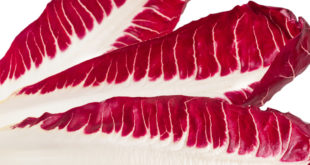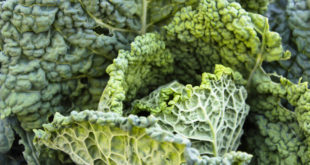The stripy fields have been planted across England as part of a trial to boost the natural predators of pests that attack cereal crops.
Long strips of bright wildflowers are being planted through crop fields to boost the natural predators of pests and potentially cut pesticide spraying.
The strips were planted on 15 large arable farms in central and eastern England last autumn and will be monitored for five years, as part of a trial run by the Centre for Ecology and Hydrology (CEH).
Concern over the environmental damage caused by pesticides has grown rapidly in recent years. Using wildflower margins to support insects including hoverflies, parasitic wasps and ground beetles has been shown to slash pest numbers in crops and even increase yields.
But until now wildflower strips were only planted around fields, meaning the natural predators are unable to reach the centre of large crop fields. “If you imagine the size of a [ground beetle], it’s a bloody long walk to the middle of a field,” said Prof Richard Pywell, at CEH.
GPS-guided harvesters can now precisely reap crops, meaning strips of wildflowers planted through crop fields can be avoided and left as refuges all year round. Pywell’s initial tests show that planting strips 100m apart means the predators are able to attack aphids and other pests throughout the field. The flowers planted include oxeye daisy, red clover, common knapweed and wild carrot.
In the new field trials, the strips are six metres wide and take up just 2% of the total field area. They will be monitored through a full rotation cycle from winter wheat to oil seed rape to spring barley.
“It’s a real acid test – we scientists are having to come up with real practical solutions,” said Pywell, who led a landmark study published in 2017 showing that neonicotinoids insecticides damage bee populations, not just individual insects.
In the new trials, the researchers will be looking out for any sign that drawing the wild insects into the centre of fields, and therefore closer to where pesticides are sprayed, does more harm than good.
Similar field trials are also underway in Switzerland, using flowers such as cornflowers, coriander, buckwheat, poppy and dill. Pywell said the hope is that natural predators can keep pests in check from year to year, so there are never major outbreaks: “That would be the ideal – that you never need to spray.”
Read the full article → theguardian.com
 bfc.green Promoting Green Lifestyle
bfc.green Promoting Green Lifestyle


